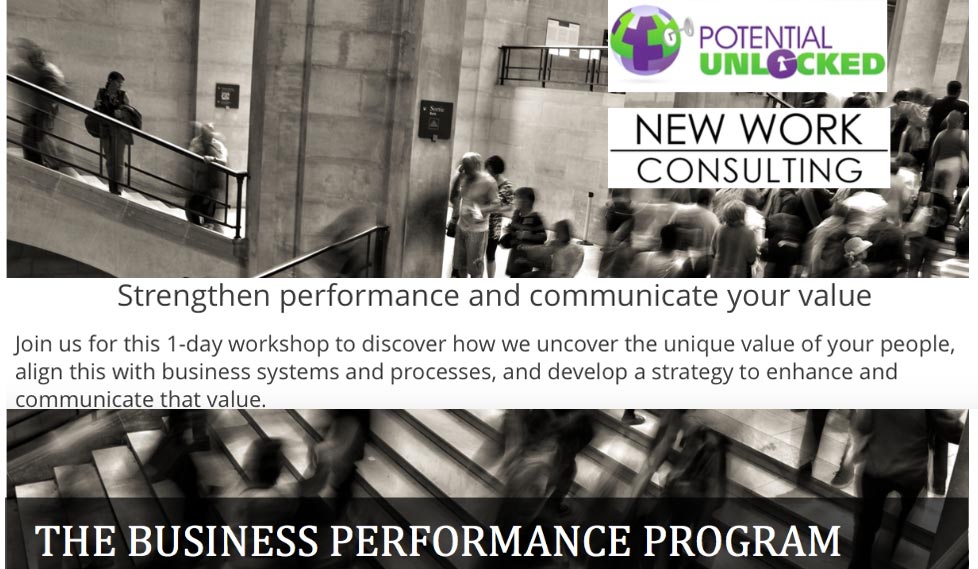Planning, Preparing and Conducting Training Workshops
Part 1 PLANNING & PREPARATION
I have been running public and in-house workshops for many years on all types of topics and one thing you can be sure of as a facilitator is that you can plan and prepare, but you never know who is going to walk through the door and whether they are committed to learning or are they what is called a ‘training hostage’!
The following are tips designed to assist staff in their planning, preparation and running training workshops.
 Image credit: Angelina Litvin
Image credit: Angelina Litvin
1. Decide on the format and content outline
When deciding to run a workshop it is important to be clear as to what the topic and objective of the training is and who are the best-suited employees to attend.
When deciding to run a workshop it is important to be clear as to what the topic and objective of the training is and who are the best-suited employees to attend.
2. Prepare learning material
If the training is to cover a simple work task or process, then a methodical approach using a work instruction or even a film clip as a training aid is how the session should be planned. However, the training may be based on the organisation’s management system, risk management, team work, auditing, how to write documents etc. - this will require research into the topic on possible best practice, papers produced by industry and or professional bodies, academia, ISO, AS/NZ standards, certification bodies and the organisation’s own management expectations.
Things to consider:
a) Does anyone have a particular learning requirement? If so, accommodate needs.
b) Handouts – attendees always appreciate something to write on during training and have that as a ‘take-away’. A handout aids learning and can be a copy of the slides being used, copies of research papers, models, and photos etc.
c) PowerPoint presentation – ‘Death by PowerPoint’ is a common term used and I strongly advise that each slide has talking points or models and is not filled with text. When preparing any training material the use of ‘white space’ will not only aid the look of the training material but will assist concentration.
d) Test and verify – when the training material has been developed and before printing it is a very good idea to get an independent person or person/s to review the content for accuracy, spelling and grammar – the best of us can miss things when we have been too close to the development. If the training is of great importance to the organisation and going to be on a large scale it would be a good idea to test the training materials with a small group of employees who can provide you with feedback before the final roll-out.
3. Send invitation to attend the training
The training will either be run in-house or at an external venue, but no matter which is selected, the topic of the training, the facilitator, date, time and location of the training needs to be included in the invitation. Attendees also generally like to know what they have to bring and if the trainer has attached reading matter or other pre-course or post-course work advice this should be explained. If providing catering don’t forget to ask if anyone has any special dietary requirements.
Christine Brown is founder and managing director of Potential Unlocked, a market leader in the design of management systems that meet compliance and business requirements. She holds a Bachelor of Arts (double major in Political Science and Public Sector Management); RABQSA Lead Auditor, DiSC 5 Behaviours of a Cohesive Team accreditation; Everything DiSC accreditation, TAE 40110 Cert IV Training & Assessment & TAELLN 411.
Due to her extensive knowledge and experience, Christine is trusted by her clients for her patience, understanding and her ability to interpret compliance requirements in a straightforward, uncomplicated way. She regularly facilitates in-house and public workshops, sharing her knowledge of designing simple processes and systems, communicating effectively as an auditor, building and leading teams, and risk management.
Christine’s clients range from small business and start-ups to large organisations and government departments. Covering a broad range of industries, her clients include Boral, BAE Aerospace, Geobrugg, Tenix, West Australian Police, and the Victorian Ambulance Service.
Christine’s new initiative, The Business Performance Program, assists businesses with all major areas of business that are essential for success

For any further information on contracting in an internal auditor to conduct your audits or auditor training please refer to more Audit Tips.










